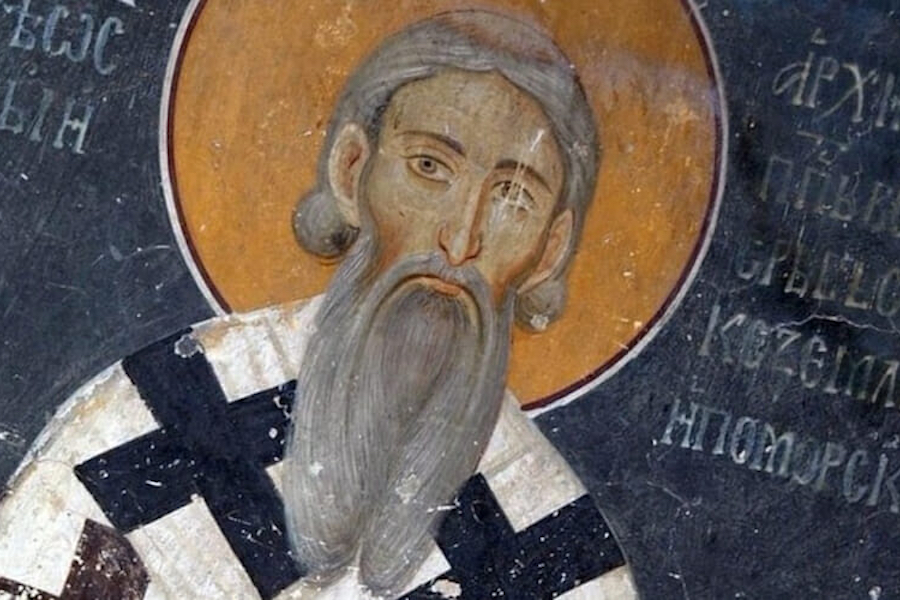
Culture
Orthodox Christmas, Oaks and Casual Cruelties
BUJANOVAC, Serbia – The man, gristle and all, perched on his stick, a statue lost in a mess of dirt ridden clothes, his face obscured by the casting shadow of the sheltering building in the southern Serbian town of Bujanovac. An eye half-shut, the other suspiciously attentive, he was spotting a particularly agitated dog, udders swollen and heavy, with disdain. The word was that he had hit that same animal the previous day. The memory stung; the dog, barking with helpless fury, wanted a revenge it could never have, a dish it could never savour.
As the barking continued with increasing agitation, a set of strangled yelps were released, followed by a sequence of piercing howls. The man had deployed his stick once more, having gotten off his perch and metamorphosed into a mobile being. No longer still statue, clothes animated and moving with the corporeal form, this mass was now directing his stick with committed viciousness. The dog, beaten, fled again, its cries weaving through the pot-filled streets of Bujanovac like lengthy stretches of pain.
The scene of casual cruelties in the town of Bujanovac alight along the potted road to the village church in neighbouring Rakovac, a village of Serbs in an area also replete with Albanians and the sound of mosques in prayer.
A puppy blackish and brown, its pygmy presence barely a few weeks old has been abandoned, its doomed cries as it vainly struggles in the damp grass defrosted from the night, bruising to the heart. Some pass by without a glance at this blur of colour, the animal struggling to find his bearings, legs giving way; others register a sorrowful regret at not being able to take the animal home. There are priorities, and the dog as pet is less valued as the dog as guard, soldier and functional protector. Animals shelters where these creatures can be saved are not thought of; the grim reaper shall have his feed tonight.
The air is thick with the smoke of busy wood stoves, smells moving across the countryside as a fog of purpose. Plump chickens are active amongst houses that seem to vary between states of collapse, barely propped up, and shacks of wood and brick with a for sale sign. There are incomplete floors, with tempting and lengthy garlands of peppers. These structures supply a melancholic anatomy lesson in architecture.
The appearance, spectacular, disconcerting, and comforting to the patriot – for when there are no jobs, patriotism becomes one, its own justification, its own release – are the tractors laden with oak branches that will supply the ceremonial bandjak. A burning is anticipated this evening, and youths with shaved heads are already intoxicated with ample pivo, rakija and Chetnik songs, a historical stutter of Od Topole pa do Ravne Gore that would have sent Yugoslavian officials into a fit. (In Tito’s multiethnic state congealed by blood and iron fisted authority, firebrand nationalism was buried in shallow soil, never vanquished, each side storing memories and curing them like smoked meats in the attic, to be consumed later.)
The town squares and church yards are readying to feature these felled oaks, branches caught in their youth, which will be purified and dissipated in conflagration. There will be mulled wine and rakija in vast cauldrons, and ring dancing. Singles shall become couples; villagers will bustle.
The morning had been characterised by something of a pilgrimage: men, armed with a small axe, some with toothy saws, trudging, cycling, riding, beeping their way to a site just outside Rakovac to seek their sacred oak. The trees there are set upon, most of them young and ideal for the ceremonies they will ultimately perish in.
Celebrations in this part of the world are not merely ones of communing occasion; they are to be boisterously, even vulgarly celebrated before those who do not. It is the pork thrust in the face of the Muslim; the contrived defilement in a holy place. In a region of Serbia where the Albanian presence is vigorous and strong, and, in some parts, dominant, the move is less than prudent. Chess pieces are moving on this particularly chess board of Balkan concern, and the moves are not looking pretty.
There are the swarthy nomads whose relatives anticipate some turn to propertied status; there are Albanians who have invested prudently and built manors of kitsch and stone, with incongruously well kept lawns. There are wise Serbs who have done the same in what is a race for survival, an existential plotting as to how best to cope with the next conflict. Locals here ponder and speculate about each other – Gypsy, Albanian, Serb – and the sense of a nature that is not noble intrigues: the shape-changing nature of a feared adversary is permanent.
The skies begin to redden, with orange hues fading into deeper rich colours. Brass bands are playing with an enthusiasm that always sounds like fury. Fires are being started. Songs are being sung. This is the eve of Orthodox Christmas, and the cries from the mosques compete, forming an eclectic if troubled mix: the blessings of Allah and the work of the Prophet, and the overarching presence of Christ.

